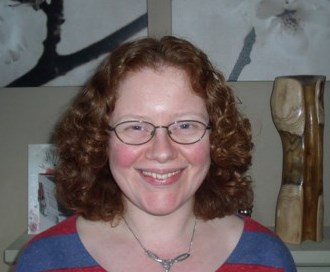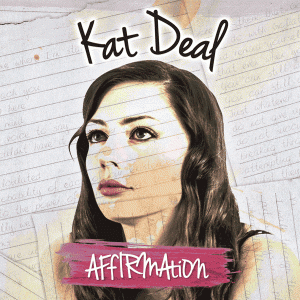The Sanctuary is delighted to introduce a new friend and contributor Sarah Parkinson. Weve only recently started to get to know Sarah, who currently lives in Ilkley. But she has made a big impact on us already – both as a person and a poet. So its with great pleasure that we feature this introductory interview, to accompany our selection of her poems on some of the Sanctuarys core themes.

1. Tell us a bit about yourself…
Im currently living in Ilkley but in a way Im not someone who has much sense of geographical loyalty or identity. I was born in Greenock, Scotland to a Scottish father and an English mother, and at the age of six months moved to England and then to West Germany at the age of ten. I met my husband in Belfast, but have since lived in Wales, Durham and Yorkshire!
I became a Christian when I was at university I wasnt really churched at all as a child. And Ive studied quite a random variety of subjects psychology, the Bible and the churchs mission, and social development.
Now, Im a wife, mother, poet and someone with a deep interest in both my own spirituality, and helping others to explore theirs.
2. When did you start writing poetry?
When I was fourteen or fifteen … in fact Ive still got a little folder of all the old ones, printed off an Amstrad which dates them well!
Its really hard to remember what got me started, but I do remember discovering that my dad had written some poetry, and that possibly inspired me a little bit.
I think it simply felt like a very natural way of dealing with what life throws at you and how you respond to it.
3. Why do you write poetry?
I think perhaps it began as a subconscious need to process my feelings, events, the heady emotion of teenage years. It must have developed quite quickly into a more conscious process, otherwise I probably wouldnt have continued. And its still about responding to what goes on, both within me and around me, particularly when theres something Im struggling to make sense of.
4. How does writing poetry help you?
Thats an interesting question because I journal as well, and I think that is a similar type of thing. If theres a particular stress or upset happening, both these things act as a way of unburdening for me.
Its similar to being able to talk to someone whom you feel perfectly comfortable with but perhaps you can be even more unfettered when its just you and a piece of paper!
Its not always about managing a negative experience though.
Sometimes (perhaps more often these days) its a response to a person or place or event that has had a deep impact on me I think the act of writing out those sort of experiences for me stamps them as a spiritual event, a time when I particularly felt God present.
5. Where does your inspiration come from?
Its often a response to experiences that Ive felt really deeply. For example, I wrote a lot of poems in the early 2000s in response to what was happening locally and internationally because I felt so strongly about it, and it was a real outpouring.
Similarly, I was on a quiet day last spring at the Briery here, and it was a beautiful day that was what inspired the poem Chance meeting I came round a corner in the garden and there was a beautiful tree, still winter-bare, yet clothed in all this borrowed greenery. It was a deeply experienced moment.
6. How do you go about writing your poems?
Some poems come really quickly, like Who loves you now, which flowed from start to finish. There was a particular intensity of feeling when I wrote that, as wed been out on a drive and Id watched someone chuck some rubbish out of their car window on the motorway. I seethed all the way home and then wrote the poem as soon as I got back!
Other times, its not such an immediate response and I have to go away and think about it the last poem I wrote was a Christmas poem which Id been thinking about writing for three or four months in the back of my mind. That one took a lot of mulling over I was thinking deeply about how to tell this new story I suppose.
Another poem which took some time was Martha, which I wrote because again and again I was coming up against a brick wall trying to make sense of the way people try to explain that scripture and it was driving me mad so I was trying to think more deeply about it, because I felt Jesus doesnt intrinsically say that stillness is better than activity.
7. How does inspiration come to you?
I start with an idea and perhaps a couple of lines will just come out of nowhere will kick me off in fact its usually more difficult to finish the poem than start it. With some of them the idea and the first lines come very close together, and with others I have to mull the idea over for a while before any words come to me at all.
8. What issues are you most passionate about that come through in your poetry?
How we treat one another as human beings thats where social justice comes in. Ive got a handful of poems that are in a sub-category of that, which are about creation and our place within it. And a lot of them are about seeking a more honest spirituality than we sometimes feel free to pursue.
I think dishonest spirituality is when were unwilling to open ourselves up to the possibility of really experiencing God and the powerful reality that that can be.
I think what prevents us from opening ourselves up to him is fear, and yet taking courage to face that fear enables us to realise what joy there can be in the presence of a God who delights in us so much.
From there, the possibilities for our own transformation and for being a blessing to others are endless.
9. As a Christian, how does creativity express and fuel your faith?
Creativity is a central part of who we are. It doesnt have to be painting or poetry constructing a building is a creative act. Im trying to think what faith would be like without creativity and surely it would just be dry, and possibly quite insipid.
Allowing ourselves to explore our creativity enables us to push the boundaries of our faith to keep the edges where the growing happens moving. Maybe thats the way creativity feeds faith.
And then I suppose I would say, with my poems for example, that there isnt anything I create that isnt in some way fuelled by my faith. God is in every single experience, and the result of his presence is felt through the poetry, whether overtly expressed or not. At least I hope so!
I suppose that means that faith and creativity fuel one another. I think imagination plays a very important role here too its essential to creativity, and it may even be true to say that faith cant grow without imagination.
10. Why do you think poetry and song lyrics have such power to communicate deep and difficult truths?
I certainly think the mark of a good poet or lyricist is that they can convey a huge depth of meaning beyond just the words… and that those words that they do choose to use can connect with our deepest selves with our spirituality I suppose.
But how the process of connecting to a song or poem works, and allowing our responses to unfold from it, I couldnt begin to guess!
11. What place do you think creativity has in mission?
I think its about re-imagining mission and using it to get past barriers.
Creativity is part of all of us and so it can be a really connecting thing. I get the impression that many people never really get to explore their creativity because they feel hemmed in by their responsibilities and their jobs.
Perhaps if exploring creativity in its many forms of expression was at the centre of the work of mission, that could help us to connect with our local communities at a point of deep, if unexpressed, need.
Download the Sanctuary’s selection of Sarah’s poetry, featuring six poems on our core themes here.
And read more about Sarah, and access many more of her poems at her site.
